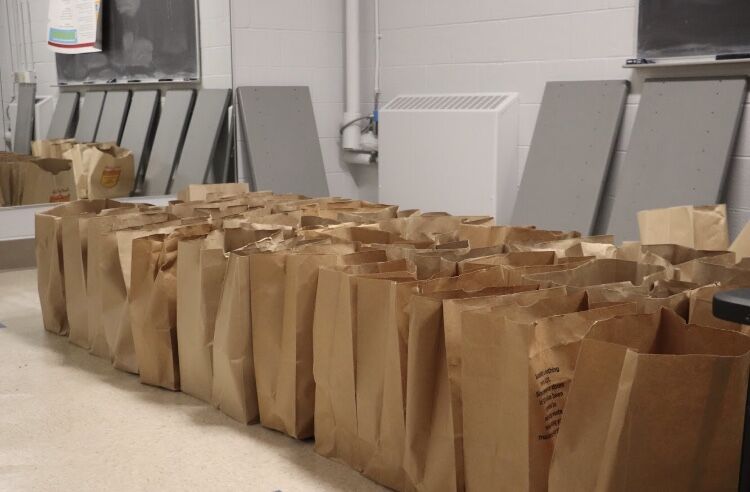On-campus food pantry serves students, staff, faculty in need
September 3, 2020
Students struggling to get enough to eat have a newly expanded resource on campus many have not even heard of. The SHOP, a student-run food pantry, provides nonperishable food items and toiletries to any Iowa State student, staff or faculty in need. Beginning this fall, the organization has moved from the Food Science Building to a larger location in Beyer Hall.
Owing to difficult financial circumstances often faced by college students, many struggle with food insecurity, which the U.S. Department of Agriculture defines as conditions causing limited or uncertain access to safe and nutritious food. According to a 2019 study by The Hope Center, students from marginalized groups, including students of color, LGBT+ students, nontraditional students and students who are veterans are especially at risk.
Data from 2019 shows that approximately 34 percent of Iowa State students experience some form of food insecurity, which while falling below that average national rate, is still a growing problem.
The SHOP, which stands for Students Helping Our Peers, is a student-run, volunteer-based food pantry located on campus. They provide food to students, staff and faculty. There is no requirement to show need, and the service is completely anonymous.
“We are open to anyone who might need just a little bit of assistance during the day, for a week, whatever they need,” said Caroline Stokes, junior in microbiology and vice president of the SHOP. “We don’t ask for names and we don’t ask any personal information about our users.”
The COVID-19 pandemic has forced The SHOP to adapt some of its operations and brought about an uptick in need on campus.
“Traditionally, people can just come in and take what they need,” said Belinda Heckman, senior in global resource systems and president of The SHOP. “This semester it’s just a little bit different in terms of operations.”
One of the changes the organization has had to make is the way in which they make the food available. Rather than shelves lined with food users can browse and pick from as needed, volunteers are prepackaging the food into kits designed to last five to eight meals.
Heckman, who also studies dietetics, said the organization strives to make the meal kits nutritious.
“You have carbs, protein and then you also have vegetables and fruit, a whole meal,” Heckman said. “You have your main dish and then you have a couple sides — being fruit and vegetables — and then there’s like three breakfast items. So it’s made that it could be three meals in a day for two or three days.”
The SHOP has also had to stop taking donations of food items, and instead rely on financial contributions, using the monetary donations to purchase food from grocery stores.
“We’re definitely having to plan ahead more with our inventory,” Stokes said.
The pandemic has also caused a significant increase in food need, both nationally and on Iowa State’s campus. Feeding America, a national nonprofit, estimates food insecurity in Story County as a whole to increase by more than 50 percent, owing especially to lost income as people — residents and students alike — have seen their jobs disappear and their work hours reduced.
“I think as a student body, a lot of jobs were lost this summer,” Heckman said. “Just from experience, in my network of people, a lot of people were scrambling to find work this summer. We definitely saw that translate into the number of users this summer.”
The SHOP expects to see this need continue into the semester. Volunteers have been packing around a hundred bags per week so far, according to Stokes, and most of those have been going out.
The SHOP is open Tuesdays and Fridays from 10:00 a.m. to 2:00 p.m. in the lower level of Beyer Hall.
“I can’t imagine going through college and college courses and education being food insecure all the time,” Stoke said. “Please come get the resources you need because we are here.”

















